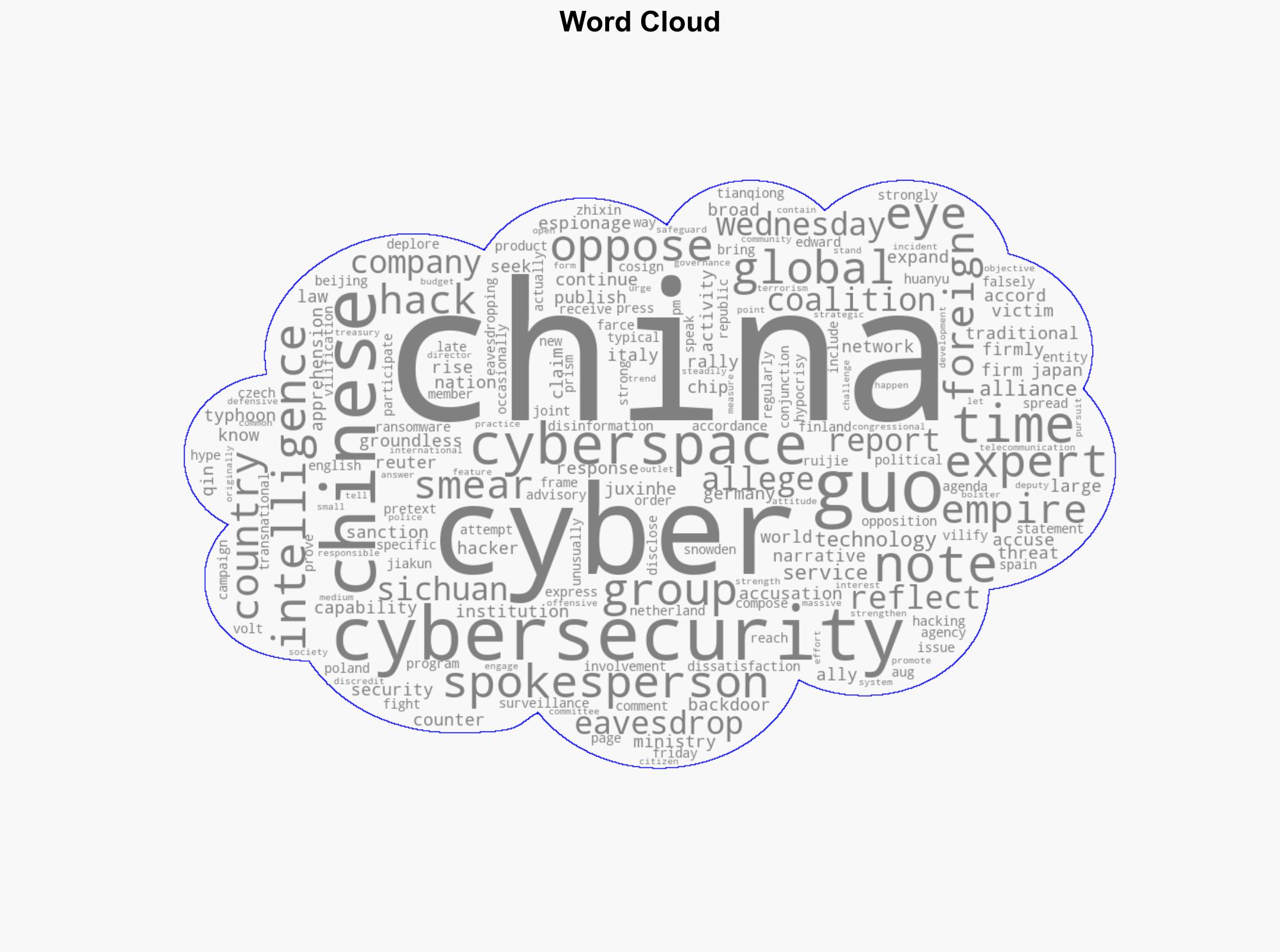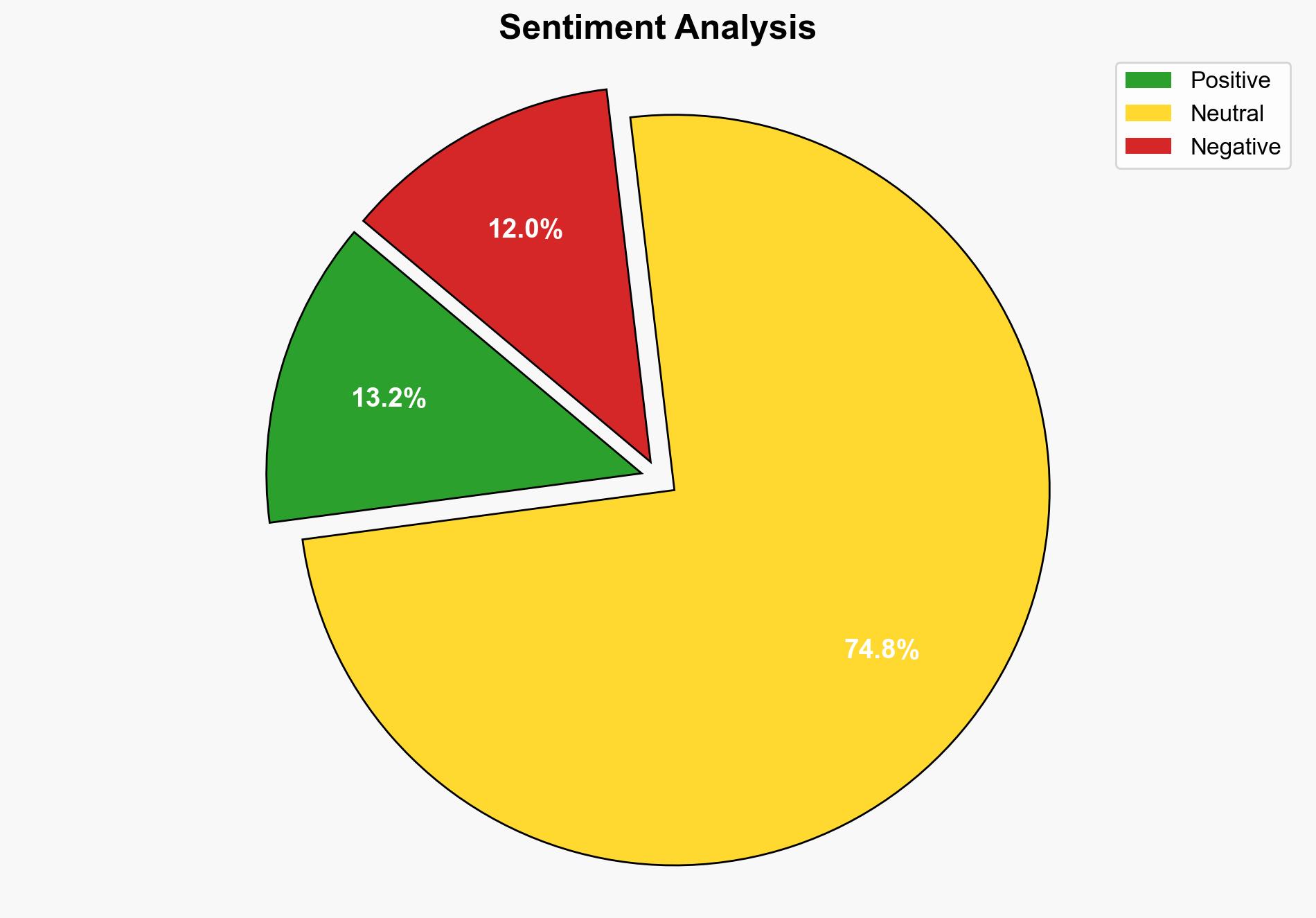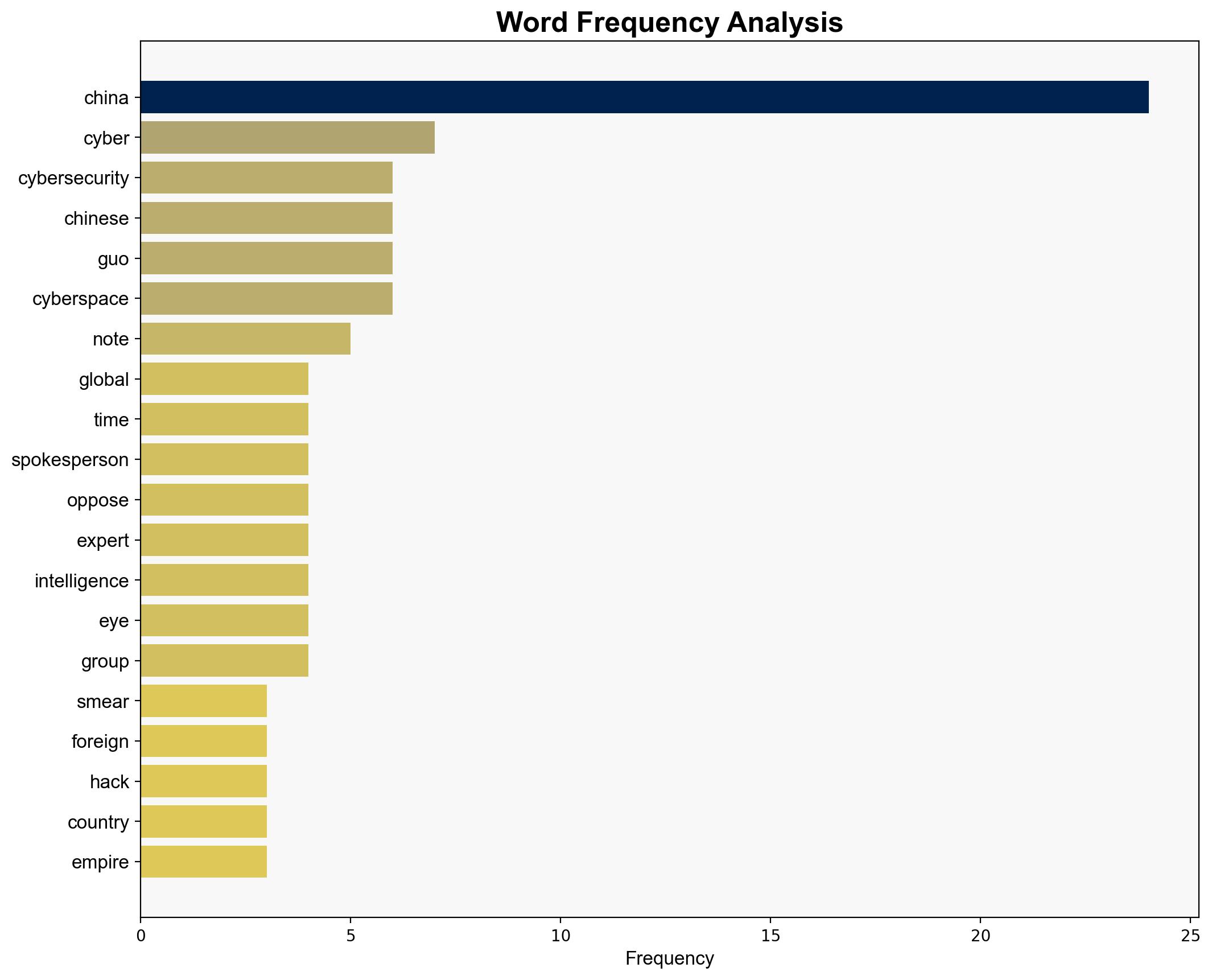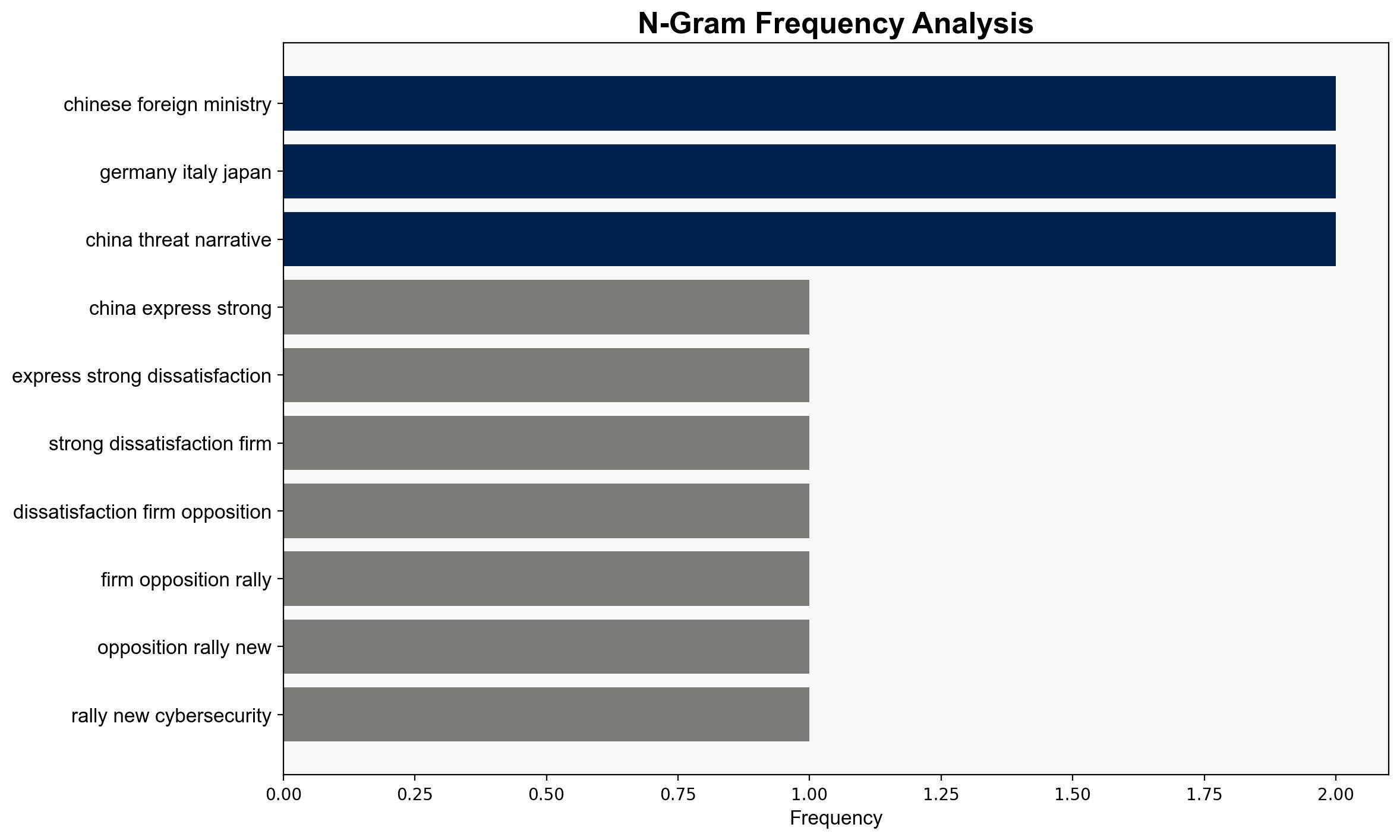China expresses strong dissatisfaction and firm opposition to US for rallying a new cybersecurity smear campaign against China – Globalsecurity.org
Published on: 2025-08-30
Intelligence Report: China expresses strong dissatisfaction and firm opposition to US for rallying a new cybersecurity smear campaign against China – Globalsecurity.org
1. BLUF (Bottom Line Up Front)
The most supported hypothesis is that the US and its allies are increasing cybersecurity pressure on China to counter its growing influence in cyberspace, with a medium confidence level. It is recommended to monitor the diplomatic and cyber responses from China and assess the impact on international cybersecurity cooperation.
2. Competing Hypotheses
1. **Hypothesis 1**: The US and its allies are genuinely concerned about China’s cyber activities and are rallying to counteract perceived threats.
– **Supporting Evidence**: The broad coalition of countries, including non-traditional allies like Germany and Japan, suggests a coordinated response to perceived threats.
– **Contradictory Evidence**: China’s claims of disinformation and political agendas indicate possible exaggeration or misinterpretation of threats.
2. **Hypothesis 2**: The US is using cybersecurity accusations as a strategic tool to contain China’s rise in cyberspace and maintain its own technological dominance.
– **Supporting Evidence**: China’s emphasis on the US’s historical cyber activities (e.g., PRISM program) and the timing of accusations aligning with geopolitical tensions suggest strategic motivations.
– **Contradictory Evidence**: The involvement of multiple countries in the coalition could imply a shared genuine concern rather than a unilateral US agenda.
3. Key Assumptions and Red Flags
– **Assumptions**:
– The coalition’s accusations are based on credible intelligence.
– China’s cybersecurity capabilities are perceived as a threat by the coalition.
– **Red Flags**:
– Lack of specific evidence presented publicly by the coalition.
– China’s historical narrative of victimization in cyber espionage could be a deflection tactic.
– Potential cognitive bias in interpreting China’s cyber activities as inherently aggressive.
4. Implications and Strategic Risks
– **Geopolitical**: Increased tensions between China and the coalition could lead to further diplomatic strains and impact global cybersecurity cooperation.
– **Economic**: Sanctions on Chinese companies could disrupt global supply chains, particularly in technology sectors.
– **Cyber**: Potential escalation in cyber activities, including retaliatory cyber operations by China.
– **Psychological**: Heightened perception of threat could lead to increased public support for cybersecurity measures in coalition countries.
5. Recommendations and Outlook
- Enhance intelligence-sharing mechanisms among coalition members to ensure accurate threat assessments.
- Engage in diplomatic dialogue with China to address cybersecurity concerns and reduce tensions.
- Scenario Projections:
- Best Case: Improved international cybersecurity cooperation and reduced tensions through diplomatic engagement.
- Worst Case: Escalation of cyber conflicts leading to significant economic and technological disruptions.
- Most Likely: Continued diplomatic and cyber posturing with periodic escalations and de-escalations.
6. Key Individuals and Entities
– Guo Jiakun: Chinese Foreign Ministry spokesperson.
– Sichuan Juxinhe Network Technology, Beijing Huanyu Tianqiong Technology, Sichuan Zhixin Ruijie Network Technology: Chinese companies accused of cyber activities.
– Qin: Deputy Director, Expert Committee on Counter-Terrorism and Cyber Security Governance, China Society of Police Law.
7. Thematic Tags
national security threats, cybersecurity, counter-terrorism, regional focus





